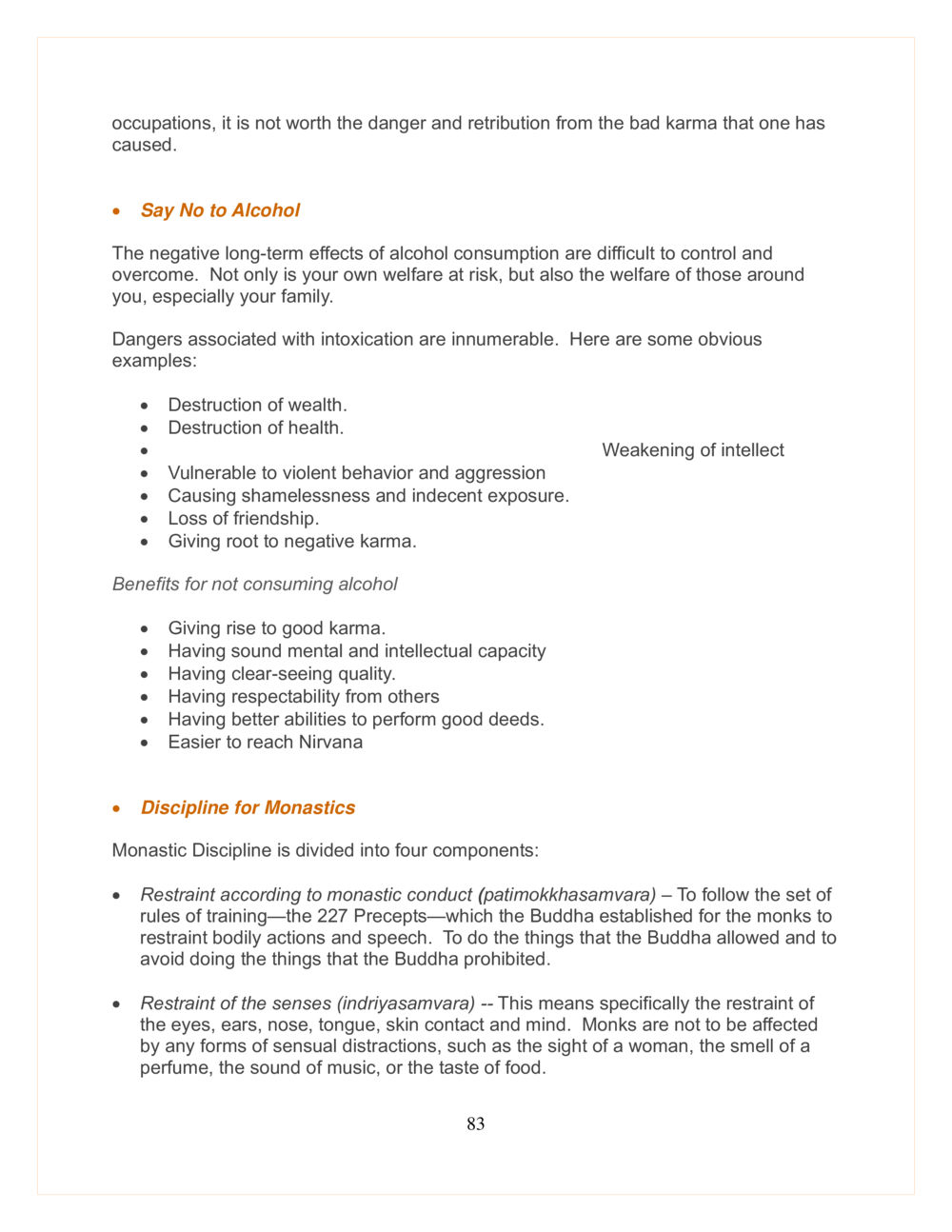Say No to Alcohol : หน้า 83/115
DMC Translor’s handbook : หน้า 83/115 Exploring the negative effects of alcohol consumption on personal and family welfare, and the benefits of abstaining from it.
0 ครั้ง

สรุปเนื้อหา
The long-term effects of alcohol are detrimental not only to the individual but also to their family. Alcohol leads to destruction of wealth, health issues, aggressive behavior, loss of friendships, and generates negative karma. Choosing to abstain from alcohol can lead to positive outcomes such as good karma, improved mental clarity, respect from others, and the ability to perform good deeds, ultimately easing the path towards Nirvana. Additionally, monastic discipline emphasizes the importance of following the Buddha's teachings, which include restraint in conduct and senses to avoid distractions.
หัวข้อประเด็น
-Negative effects of alcohol
-Benefits of sobriety
-Monastic discipline and rules
-Restraint of senses
ข้อความต้นฉบับในหน้า
Say No to Alcohol
The negative long-term effects of alcohol consumption are difficult to control and overcome. Not only is your own welfare at risk, but also the welfare of those around you, especially your family.
Dangers associated with intoxication are innumerable. Here are some obvious examples:
• Destruction of wealth.
• Destruction of health.
• Vulnerable to violent behavior and aggression
• Causing shamelessness and indecent exposure.
• Loss of friendship.
• Giving root to negative karma.
Weakening of intellect
Benefits for not consuming alcohol
• Giving rise to good karma.
• Having sound mental and intellectual capacity
• Having clear-seeing quality.
• Having respectability from others
• Having better abilities to perform good deeds.
• Easier to reach Nirvana
Discipline for Monastics
Monastic Discipline is divided into four components:
Restraint according to monastic conduct (patimokkhasamvara) – To follow the set of rules of training—the 227 Precepts—which the Buddha established for the monks to restraint bodily actions and speech. To do the things that the Buddha allowed and to avoid doing the things that the Buddha prohibited.
Restraint of the senses (indriyavashamara) – This means specifically the restraint of the eyes, ears, nose, tongue, skin contact and mind. Monks are not to be affected by any forms of sensual distractions, such as the sight of a woman, the smell of a perfume, the sound of music, or the taste of food.
หน้าหนังสือทั้งหมด
หนังสือที่เกี่ยวข้อง
Load More



















































































































